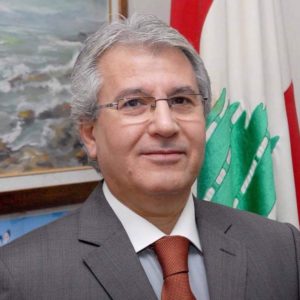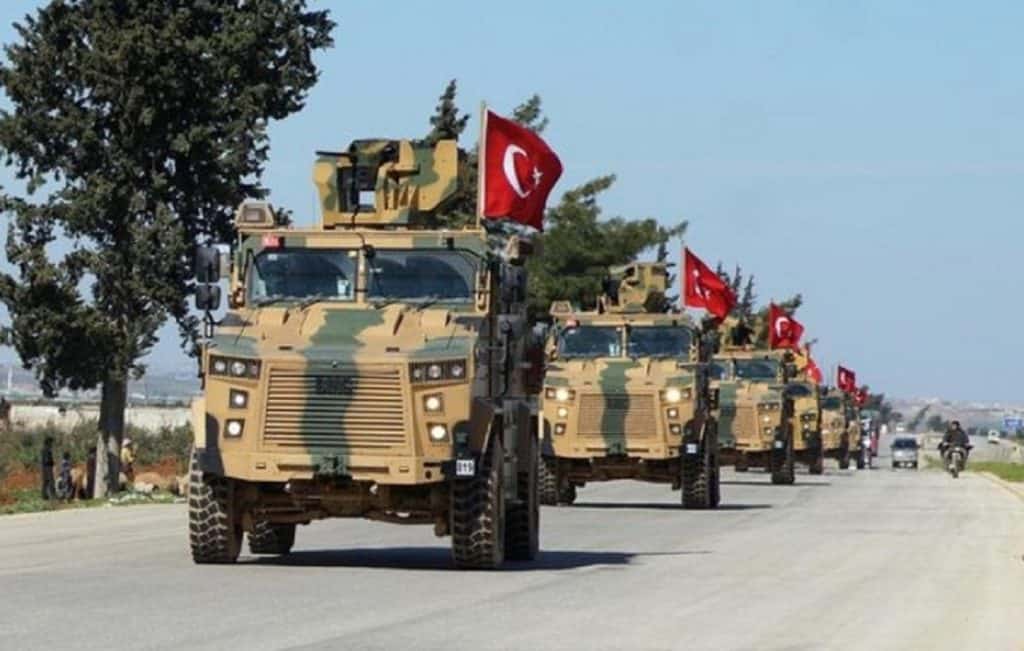Interview with Refaat Ibrahim Badawi
On January 20, 2020, Turkey launched a military operation against the Syrian Arab Army in Idlib province. In this regard, the risk of a direct military clash between Ankara and Moscow, which supports the government forces of official Damascus, has increased significantly. This became especially evident when, on February 21, 2020, the Turkish crew during an attack on the city of Nairab attempted to bring down a Russian Su-24 military aircraft. However, the Russian side so far has shown maximum restraint, not responding to Turkish provocations. Meanwhile, this does not reduce the passions between Moscow and Ankara, but only creates the basis for the next “airplane crisis”.
Especially for World Geostrategic Insights, Denis Korkodinov talked about this with Lebanese military expert and political analyst Refaat Ibrahim Badawi.
1. February 19, 2020, speaking at a meeting of the parliamentary faction of the Justice and Development Party in Ankara, Recep Erdogan said that the military operation of the Turkish armed forces in Idlib can at any time. And in fact, this campaign began the next day, when the Turkish army launched an offensive in the direction of the city of Nairab. What do you think about this? Can Ankara get support from the EU and NATO?

Refaat Ibrahim Badawi: The Syrian north has become the scene of a regional conflict, the players of which are various force groups supported by Russia and Iran, on the one hand, and Turkey, NATO and the USA, on the other.
Turkey faces a difficult situation, especially after the Syrian Arab Army established absolute control over the roads connecting Aleppo with Damascus and Aleppo with Lattakia (M4 and M5 routes). This was achieved with the support of Iran and Russia, which provided security in rural Aleppo and helped to eliminate terrorists in several key areas forming a link between the regions and Damascus, such as Sarakib and Nairab.
Turkish President Recep Erdogan has clearly shied away from his obligation to fulfill the conditions of the Sochi and Astana agreements, which explicitly indicate the need for the Turkish authorities to stop supporting terrorists in a way that guarantees a peaceful solution to the Syrian conflict.
Violations of obligations by Ankara led to the failure of the meeting, which was attended by the head of the Syrian intelligence service, Major General Ali al-Mamluk, the head of Turkish intelligence Hakkan Fedan, in Moscow. This forced the Syrian leadership to make a strategic decision to cleanse the northern region, including the city of Idlib, from terrorist organizations supported by Turkey.
By the way, the Syrian decision was made a long time ago. But the Russian leadership has always advised to slow down, because it counted on Turkish cooperation after Erdogan himself made several promises regarding the commitment to the peace process. But the Turkish leader did not fulfill these promises, as a result of which it became clear to the Russian and Syrian leaders that Erdogan’s promises were a utopia.
Erdogan’s subsequent high-profile statements, which include a direct threat to the Syrian Arab Army, have led to marked tensions in Turkish-Russian relations. This tension led to an exchange of visits between the two countries at the officer level to discuss the military situation and in Russia’s attempt to convince Erdogan to return to the obligation to fulfill what was agreed in Astana. However, the Turkish president decided to launch a military operation against the Syrian Arab Army.
Erdogan plunged his army into the Syrian hinterland, trying to demonstrate his muscles, while striving to change the new equation in this area. At the same time, the Turkish leader forgot that the Syrian government forces are waging a fierce war for the liberation of their land, while Turkey is illegally located on Syrian territory.
Ankara calls on NATO and the USA for help. However, this assistance is being questioned, given the fact that Recep Erdogan, through his controversial policies, split the relations between Turkey and NATO, as well as between Turkey and the United States. Therefore, Ankara is no longer a source of trust for members of the North Atlantic Alliance, primarily because it acquired the Russian S-400 system and expressed its intention to build a reactor with the direct financial participation of Moscow. Among other things, Europe is afraid of a new wave of refugees who may travel from Syria to European countries through Turkey.
Thus, the EU and NATO countries are unlikely to support the Turkish military campaign in Idlib.
2. Recently, Russian Deputy Foreign Minister and Presidential Special Representative for the Middle East and Africa, Mikhail Bogdanov, said that a trilateral summit of Russia, Iran and Turkey on the situation in Syria could be held in Tehran in early March 2020. According to him, Russia and Iran are ready to take part in it and expect a response from the Turkish leadership. He also said that he did not know how likely a meeting between the presidents of Russia and Turkey, Vladimir Putin and Recep Tayyip Erdogan, would be possible in the near future to discuss the situation in the Syrian province of Idlib. Based on this, it is obvious that Ankara is likely to complete the first stage of its military operation before the beginning of March 2020, in order to record its military achievements during a trilateral meeting. In this case, Turkey, most likely, will not be configured to cede its positions in Syria. How likely is it that as a result of a trilateral meeting, the leaders of Russia, Turkey and Iran will be able to agree on the situation in Idlib?
Refaat Ibrahim Badawi: Talking about a Russian-Turkish-Iranian summit early next month could be a watershed in a military operation in northwestern Syria. At the same time, the initial reason for the refusal of Russian President Vladimir Putin from a bilateral meeting with Recep Erdogan was the lack of confidence in the promises of the Turkish leader. Meanwhile, there are contacts between the President of France, the Chancellor of Germany and the President of Turkey to persuade Ankara to abandon escalation steps in order to avoid Russian-Turkish military clashes in Syria.
It was decided to hold a quartet summit between Russia, Turkey, France and Germany on March 5, 2020. The purpose of this is to discuss not only events not only in Syria, but also in Libya, where Moscow expresses its determination to eliminate the last centers of al-Qaeda and its branches. This explains the statements by Russian Foreign Minister Sergei Lavrov at a security conference in Munich when he said that the elimination of terrorism in Syria and Libya is not subject to discussion. And I hope that the Russian plan will certainly receive support from the EU and accelerate the holding of the summit of the international quartet.
3. Commenting on the outbreak of hostilities of the Turkish forces against the Syrian Arab Army, Russian presidential spokesman Dmitry Peskov called this the “worst case scenario”. At the same time, the Russian diplomat did not explain how Moscow could react if Ankara begins a military operation in Idlib. Nevertheless, given that the Russian military aviation was anxious to interfere with the advancement of the Turkish army, Moscow’s reaction was obvious. So, Russia wants Recep Erdogan to withdraw his troops from Idlib. Do you agree with this statement?
Refaat Ibrahim Badawi: Turkey has fought fiercely in Syria for 8 consecutive years to overthrow Bashar al-Assad. However, the political regime in Damascus survived, as a result of which Erdogan’s dream did not come true, including due to Russian intervention. But Ankara continued to manipulate and play on regional contradictions until Russian-Turkish relations reached what they had achieved.
So Putin wanders through the ancient streets of Damascus and expresses his amazement at the beauty of life in the Syrian capital, as well as the fact that it is full of life, restaurants and historical places. In addition, the President of Russia visited the Great Umayyad Mosque, Salahuddin Mosque and the oldest Orthodox church in Damascus.
Thus, Moscow emphasized that it is determined to stay in Syria for a long time and to lead the process of interfaith dialogue in the region.







